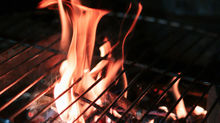Fridge Foraging Secrets
- Sep 6, 2020
- 2 min read
A New Frontier of cooking awaits you in the kitchen
In light of today's restrictions on travel and eating out, we are all embracing cooking at home more often. Our trips to the store have to be carefully planned with stealth bomber precision, and we stock a larder that would rival the Pope's closet. The upside to all of this is that virtual cooking classes, youtube, and other tools for learning are abundant online now. Want to learn how to bake? Grill vegetables? No problem, there are resources from start to finish and everything in-between. All you need is to know what dish you want to cook and there are countless gourmet stars on hand at the touch of a keystroke.

This newfound culinary therapy will bring you the confidence to strike out on your next level of skill. I call it "fridge foraging". It's the ability to look in the fridge and pantry and come up with a meal without going to the store or borrowing it from the neighbor. I love to teach classes that focus on technique rather than recipes. Don't misunderstand me, recipes have an important place in cooking to ensure proper taste and authenticity and I absolutely use recipes when baking most things, I am not talking about that, I am talking about using your knowledge of previous cooking and transferring to what's in the fridge in front of you.

You don't need a recipe
If one learns the basics, you can translate them into countless dishes. Practice makes perfect in this case. Also cooking with more experienced cooks will teach you the nuances of a dish though experience. I always say, " The master fails many times more than the student tries".
Cooking a dish from memory is a good way to practice your culinary skills. Trying to make it the same way every time improves your culinary muscles. Once you have mastered it, you can start with some small substitutions. Cooking more frequently will also up your chops.
Here are a few key elements of cooking without a recipe:
Learn when to tell when things are done. The more you cook, the better you will get at this.
Visualize your recipe when it's done before you start to cook.
Taste your food as you add each ingredient or spice. It will teach you what each seasoning does to enhance the food.
Pay attention to how things smell when they are cooking and done. For instance, I can tell right away if nuts are ready to take out of the oven.
Start practicing substitutions and seasoning dishes you already are comfortable with cooking
Learn how much salt to use in a dish, taste it before and after you add the salt.
Learn basic formulas for dishes. Write them down and add more notes when you make the dish.
Make sure you have enough time and energy to cook. Your food knows when you are tired and not paying attention.
Learn the basic flavor profiles of Asian, Latin, Cajun, and other cuisines.
Set a goal to fridge forage at least once a week if not more.









































Comments